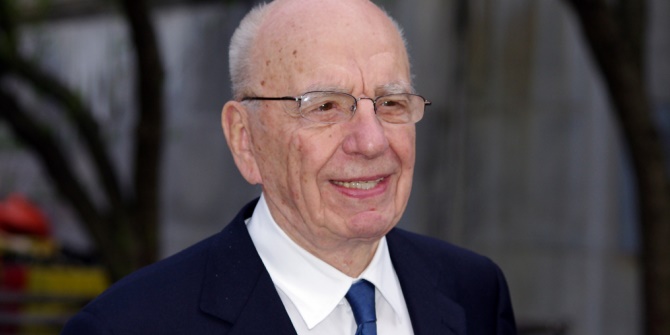 Charlie Beckett mulls over the implications of a less than usual week in Westminster and beyond.
Charlie Beckett mulls over the implications of a less than usual week in Westminster and beyond.
When Harold Wilson said that thing about long weeks in politics*, I don’t think he had grannies, pasties, jerrycans and Bradford Muslims in mind. This has been a particularly febrile seven days in political communications – what do you think we have learnt?
Here are some of my thoughts but I’d be interested in your views.
1. Symbolism Matters:
You can give me all data visualisations you like about the number of cabinet ministers who a) went to Eton b) went to Oxbridge c) are millionaires but when the Chancellor tries to tax a pasty and then admits he’s never tasted one or knows how much they cost, then his chips (as it were) are up (or is it down?)
2. Short-term issues can have more impact than Big Issues
The economy is stagnant, unemployment soars, welfare is slashed, the NHS is privatised but what really hurts us is the idea that we might run out of petrol over a Bank Holiday weekend. Well, that’s reality. Camels, straws, backs. No-ones going to starve but it’s the marginal added stress that annoys
3. Governments set the agenda by what they do, not what they say
George Osborne and his team put so much effort into using his private polling to pre-spin the budget that he forgot to do the real politics. Only The Economist ended up liking the budget because only that rather serious magazine had bothered to look at the strategic purpose instead of the PR effort. Everyone else spotted what George’s tactical team had brushed under the presentational carpet: the sensible but politically sensitive Granny Tax.
4. The Tory Press Hates The Tories
The last time the Tories got this much stick from Tory papers was when John Major was in Number 10. This is partly because Cameron is not right-wing enough. It is also because they love to turn tactical incompetence into a fundamental crisis (and there’s been a lot of that, even from apparently sensible people like Francis Maude). It might also be that in lieu of Labour doing a decent job, they see themselves as the Real Opposition. It might even have something to do with Leveson and the loss of Coulson. The top Tories aren’t doing enough sucking up to proprietors and editors and the Downing Street operation has lost touch with the Lobby?
5. Media is ever more febrile, but also more London-centric
The onslaught on Ed Miliband has abated. He’s not even getting stick for Unite and the petrol strike (partly thanks to Maude’s panic mongering). But although his poll ratings have edged up he’s still not looking like a Prime Minister in waiting. Yet not a single London correspondent wrote about the threat to Labour’s safe seat at the Bradford West by-election. I am not sure it was even covered routinely. I am weary of over-excitement about meaningless by-elections but doesn’t Galloway’s win suggests that something interesting is happening out there in the land beyond the M25?
I guess this all has something to do with Coalition politics and the Grand Narrative of structural economic crisis. At the political level everything is negotiated and compromised. It is difficult to set out a clear, let alone positive agenda. Policies like pasty taxes are of almost no consequence in terms of the giant economic forces at work on our lives. But politically they symbolise our frustration with a government that said we are all in this together, but acts like they live in a different world.
*Intriguingly, this is one of the most over-used cliches in politics and yet I can find no source that attributes it directly to Wilson at a particular time. As someone who produced the BBC’s documentary obit for Wilson I feel ashamed at my lack of a reference. Which week in Wilson’s fascinating career was it? What happened that week? Can you help?
This article first appeared on the LSE’s POLIS Journalism and Society blog.
Please read our comments policy before posting.
Note: This article gives the views of the author, and not the position of the British Politics and Policy blog, nor of the London School of Economics.






